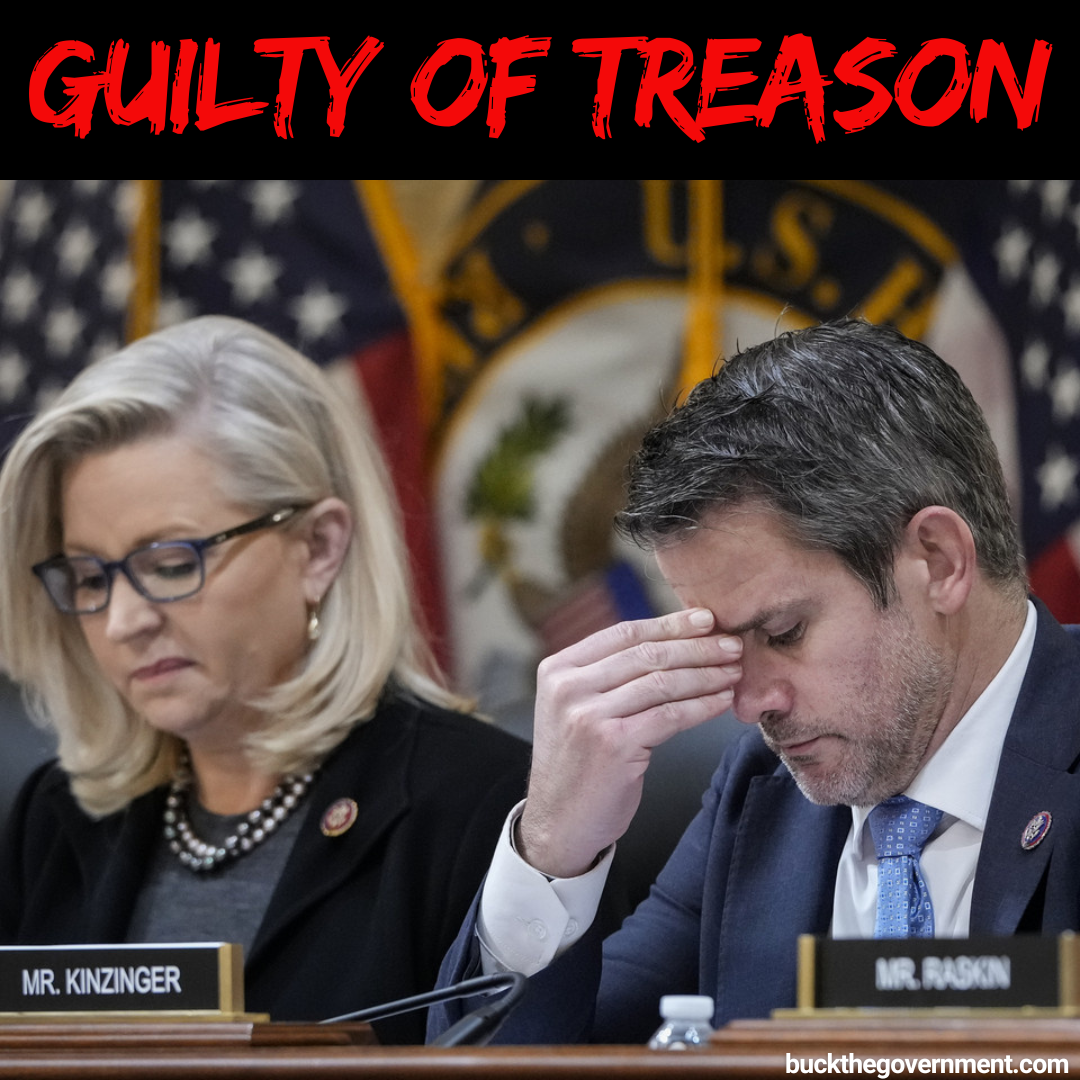The House Select Committee to Investigate the January 6th Attack on the United States Capitol, often referred to as the January 6 Committee, was established to investigate one of the most significant breaches of American democracy in modern history. However, since its inception, the committee has been fraught with accusations of partisanship, selective prosecution, and outright corruption. What was originally intended to be an impartial fact-finding investigation has instead become a political weapon used by some to pursue a predetermined narrative. In this post, we will explore the reasons why the January 6 Committee fails to meet the standards of transparency, fairness, and legitimacy that an investigation of this magnitude deserves.
1. A One-Sided Committee: The Partisan Nature of the Investigation
One of the most glaring issues with the January 6 Committee is its composition. House Speaker Nancy Pelosi made the unprecedented move of rejecting two Republican nominees to the panel, Representatives Jim Banks and Jim Jordan, who were selected by House Minority Leader Kevin McCarthy. Pelosi claimed that their involvement in contesting the 2020 election results made them unfit to serve on the committee. In response, McCarthy withdrew all Republican nominees, resulting in a highly partisan panel.
What was left was a committee composed almost entirely of Democrats, with the exception of two Republican members, Liz Cheney and Adam Kinzinger. Both are well-known critics of former President Donald Trump and his influence within the GOP, effectively ensuring that the committee had no real opposition to its narrative. This unprecedented move by Pelosi to stack the committee raised red flags about the objectivity and fairness of the investigation from the very beginning.
2. Selective Use of Evidence: A Predetermined Outcome
The January 6 Committee has been accused of cherry-picking evidence to support its conclusions while ignoring or downplaying information that does not fit its preferred narrative. Rather than conducting a thorough and balanced investigation, the committee has appeared to operate with a singular purpose: to vilify former President Trump and his supporters, while painting the events of January 6 in the most politically advantageous light.
This selective use of evidence is especially troubling when considering the committee's treatment of key witnesses. Multiple testimonies that raised concerns about the lack of preparedness by law enforcement or questioned the extent of Trump's responsibility for the violence were downplayed or omitted from the public hearings. At the same time, testimony that aligned with the committee’s predetermined conclusions was heavily emphasized. The result has been an investigation that feels less like a quest for truth and more like a partisan effort to craft a narrative ahead of the 2022 and 2024 elections.
3. Ignoring the Role of Security Failures: Who Really Let This Happen?
One of the most critical aspects of the January 6 riot that the committee has failed to adequately investigate is the role of Capitol security and law enforcement failures. Despite numerous warnings from intelligence agencies and law enforcement ahead of the January 6 rally, the Capitol was woefully unprepared to handle the large crowd, many of whom were not intent on peaceful protest.
Numerous reports have indicated that Speaker Nancy Pelosi, who oversees Capitol security, along with other congressional leaders, had advance notice of potential violence but failed to act decisively. Yet, the committee has shown little interest in holding Pelosi or other responsible officials accountable for these failures. Instead, the focus has been squarely on Trump, while the glaring security lapses that allowed the breach to occur in the first place remain largely unaddressed.
The American public deserves to know why these failures happened and who was responsible for the lack of preparation on that day. However, the committee has sidestepped this issue, likely because it would implicate high-ranking officials whose missteps do not fit within the desired narrative.
4. Weaponizing the DOJ and FBI: A Chilling Precedent
Perhaps the most concerning aspect of the January 6 Committee’s work is the way it has emboldened the Department of Justice (DOJ) and the FBI to target political dissidents. While those who engaged in violent and unlawful acts on January 6 should be held accountable, the broad and aggressive tactics used by the federal government in the aftermath have raised serious concerns about civil liberties and the right to dissent.
Hundreds of individuals have been arrested in connection with January 6, with some facing overly harsh charges and prolonged pre-trial detentions. Reports have surfaced of aggressive raids, sweeping subpoenas, and disproportionate punishments for non-violent offenders. Critics have raised concerns that the DOJ and FBI, emboldened by the committee’s work, have begun to operate as political instruments, targeting Trump supporters while turning a blind eye to the violence and destruction carried out by left-wing extremist groups like Antifa during the 2020 summer riots.
The idea that political dissent is being criminalized and selectively prosecuted should alarm all Americans, regardless of their political affiliation. The Constitution protects the right to protest and assemble peacefully, and using the machinery of the state to punish those whose views are unpopular sets a dangerous precedent.
5. A Distraction from Real Issues: The Committee’s Political Timing
The January 6 Committee’s timing is also suspect. With its final report scheduled for release close to the 2022 midterm elections, the committee’s work appears to be less about genuine accountability and more about influencing voter sentiment. By keeping the events of January 6 in the headlines, the committee ensures that Republicans, and Trump in particular, remain on the defensive as they attempt to regain political power.
The American people are grappling with real and pressing issues—rising inflation, an energy crisis, a border catastrophe, and concerns over government overreach. Yet, the January 6 Committee has consumed countless hours of media attention and taxpayer dollars, distracting from these very real concerns. The committee’s work has taken on the appearance of political theater rather than a serious and sober investigation aimed at strengthening democracy.
Conclusion: A Sham Investigation
The January 6 Committee, or "Unselect Committee" as some have dubbed it, represents a troubling abuse of congressional power. Rather than providing a fair and thorough investigation into the events of January 6, it has devolved into a partisan spectacle designed to serve political objectives. Its one-sided composition, selective use of evidence, and failure to hold accountable those responsible for security lapses raise serious doubts about its integrity.
Furthermore, the committee’s encouragement of aggressive prosecutions and its timing ahead of key elections point to its role as a tool for political retribution. In the end, what could have been an opportunity to strengthen American democracy through truth and accountability has instead become a vehicle for division and partisan rancor.
Americans deserve better. True accountability cannot come from a process that is itself compromised by bias and corruption. As the investigation continues, it is essential for the public to question the motives behind the committee’s work and demand real transparency in pursuit of justice. To take it a step further, it is imperative that every single member of the sham committee be arrested and charged with treason.


